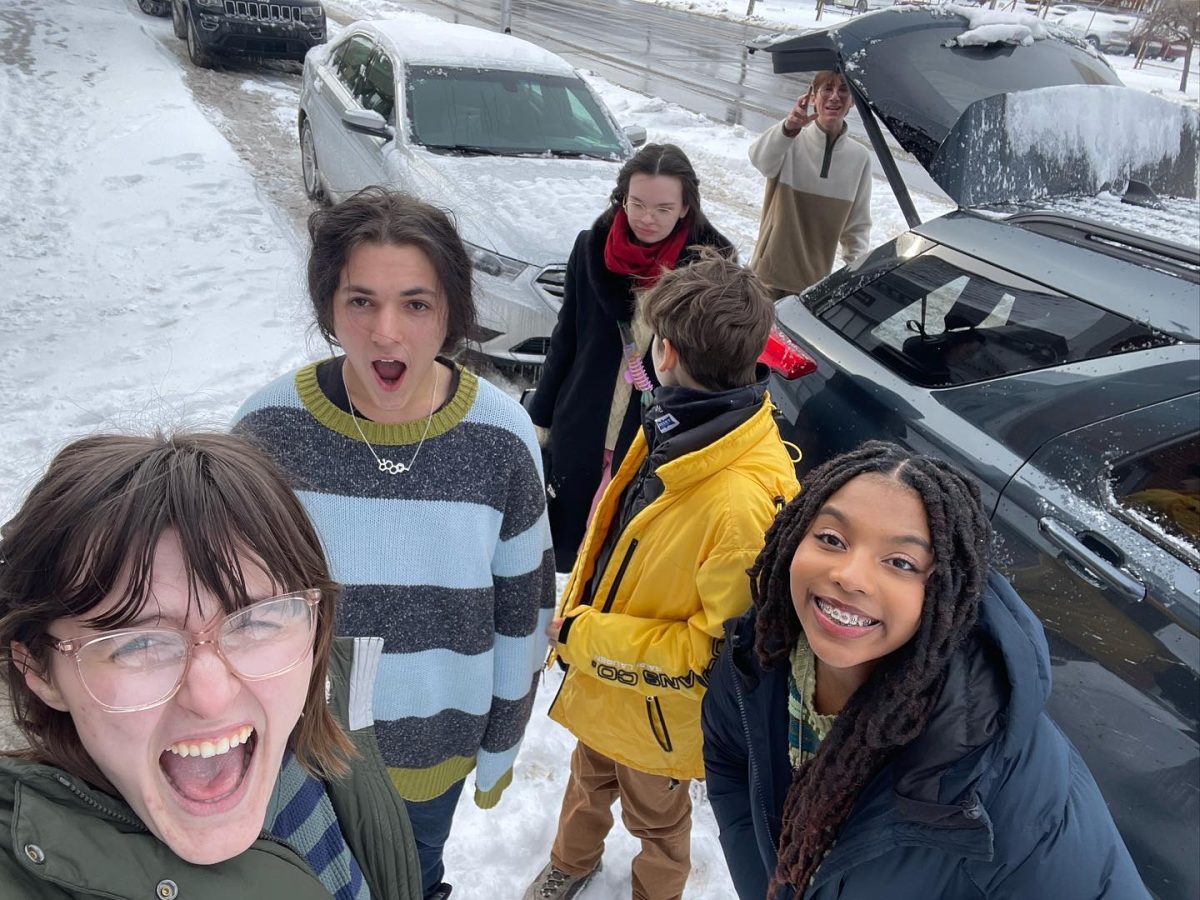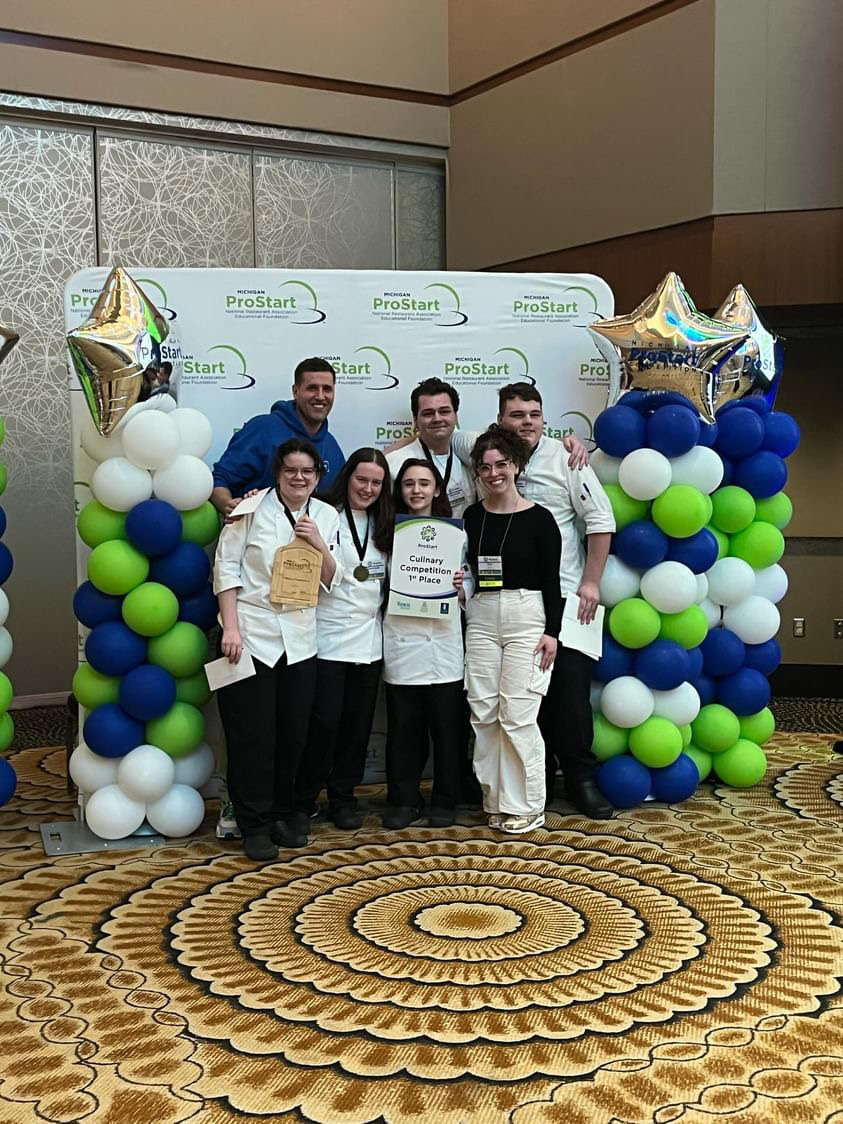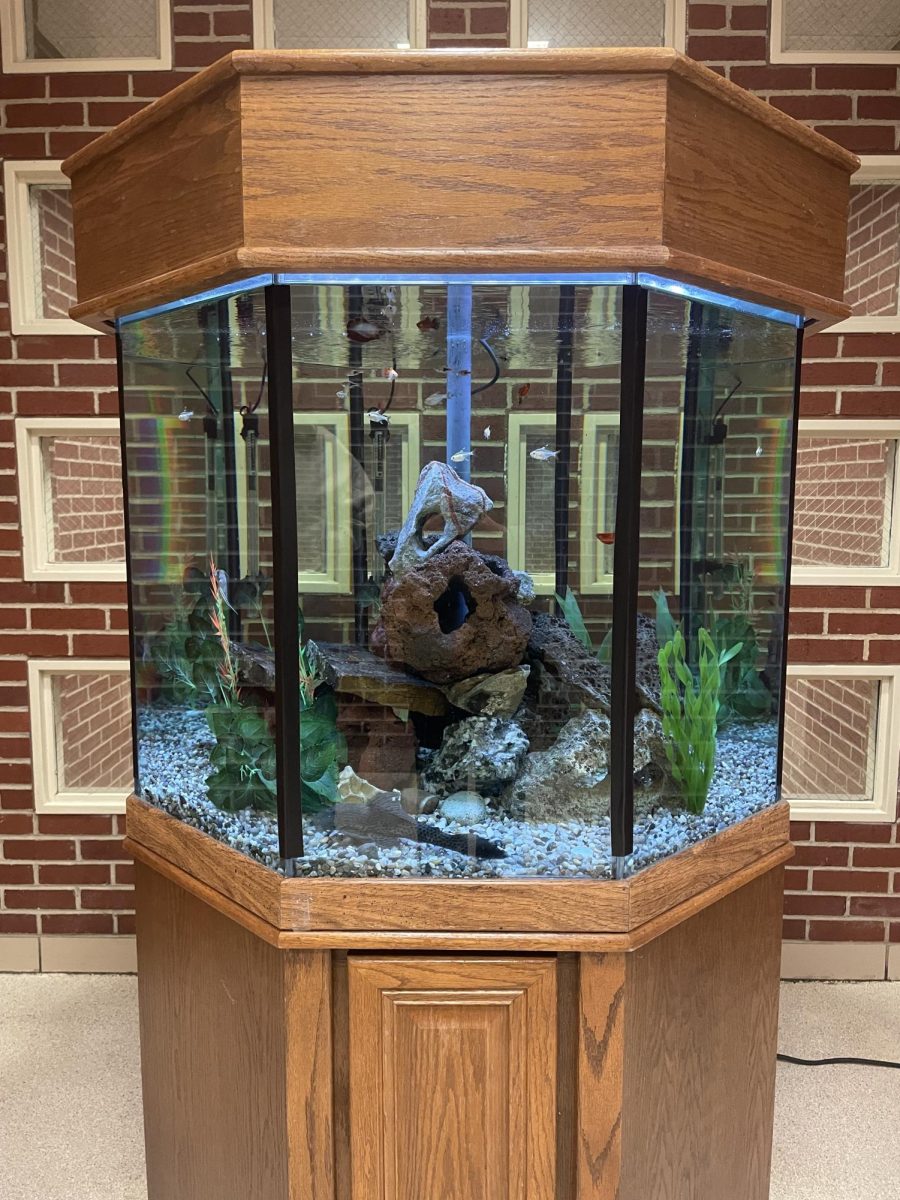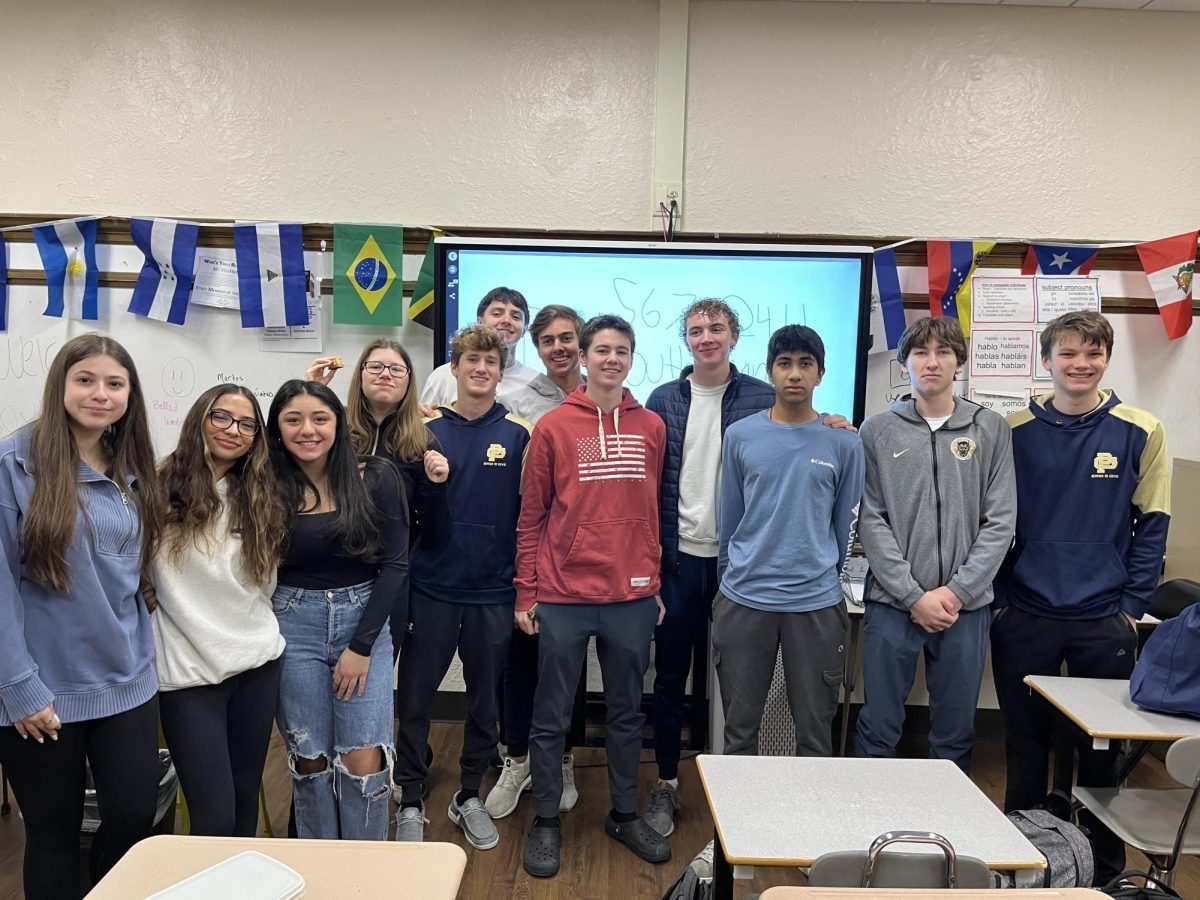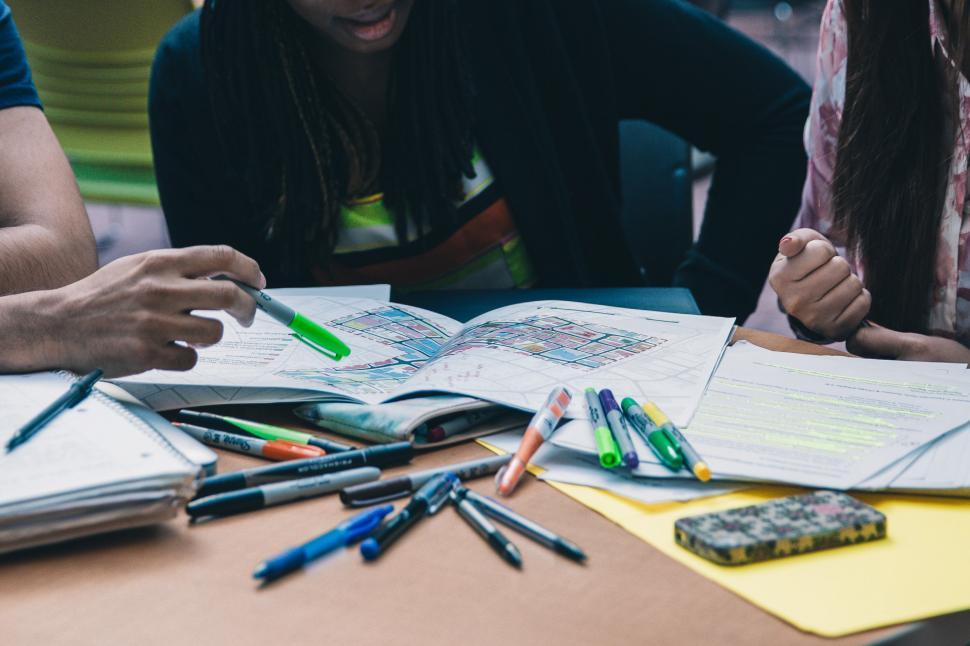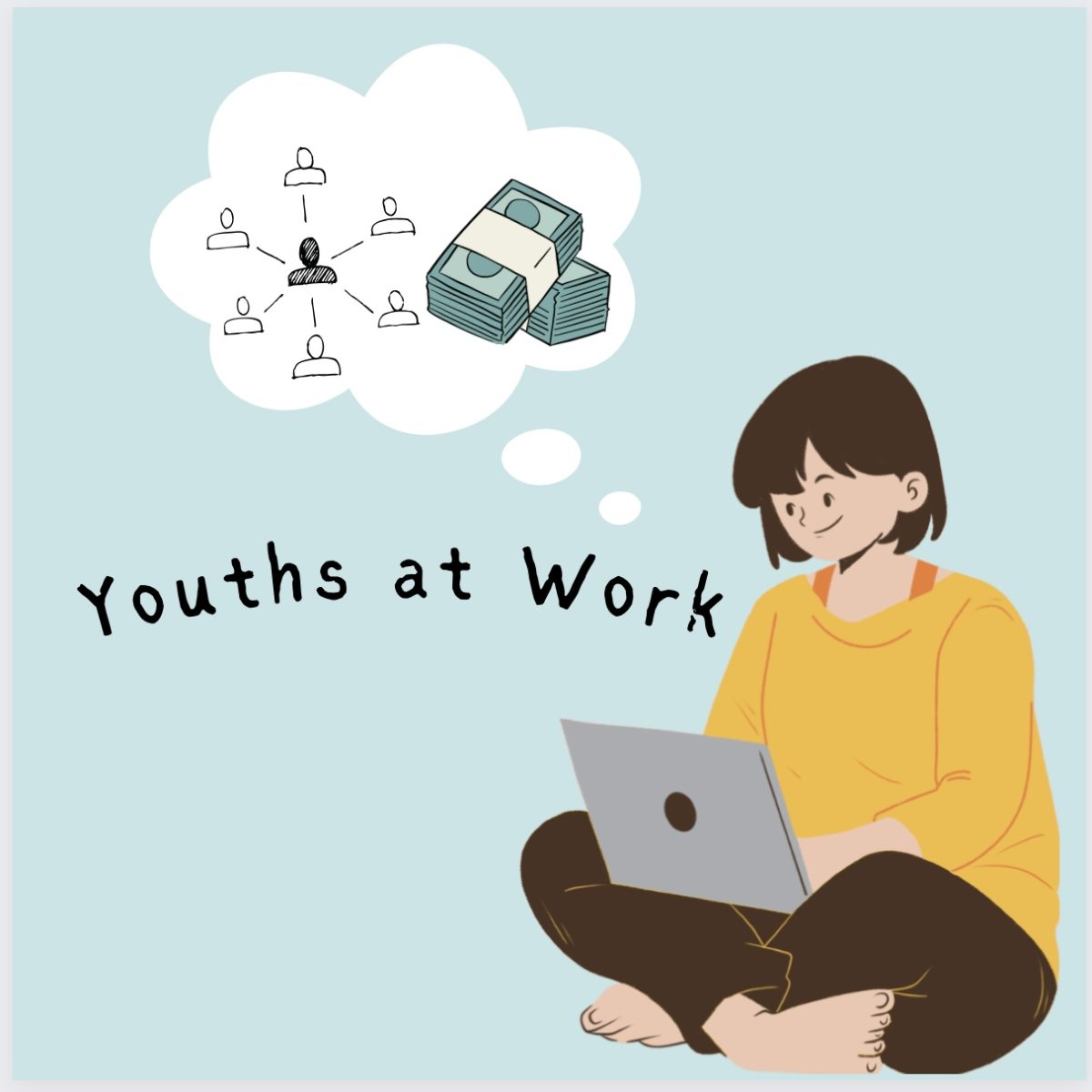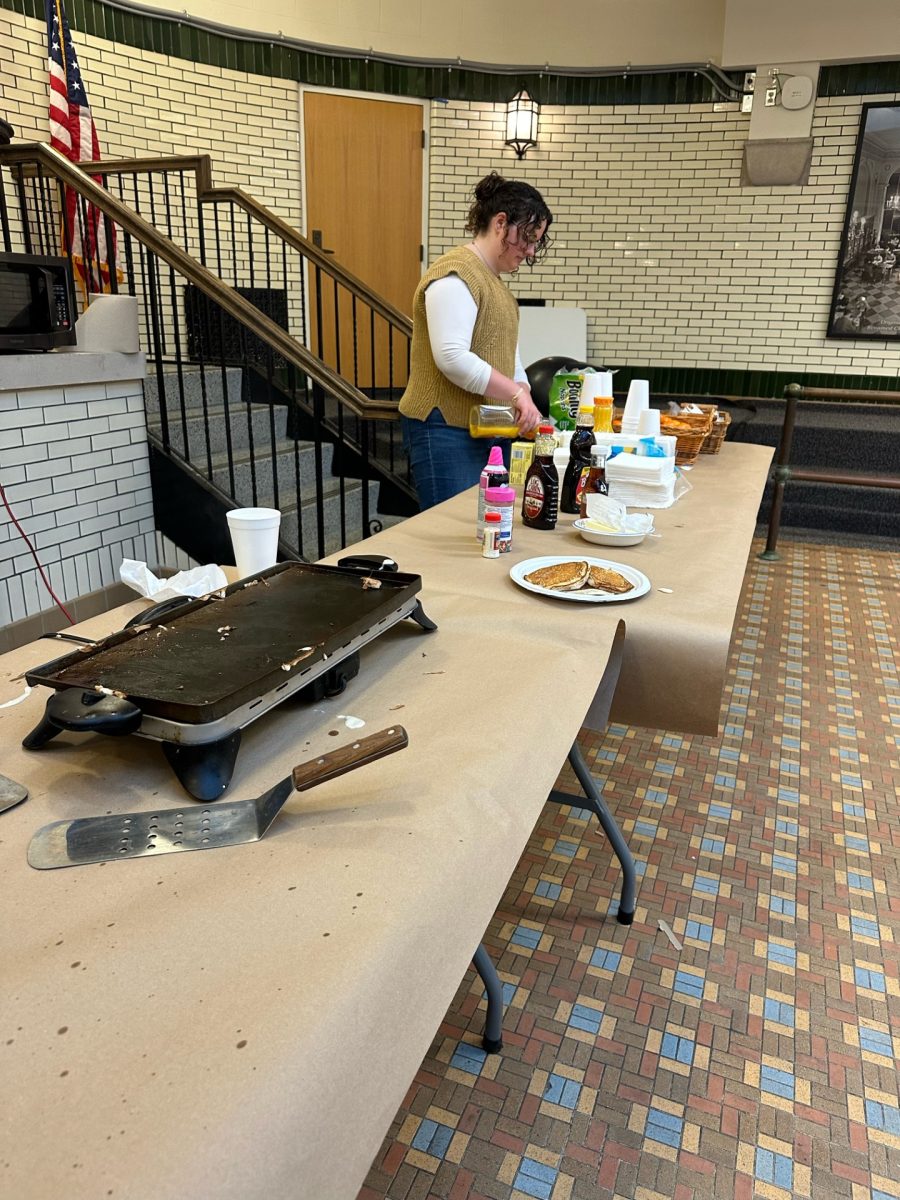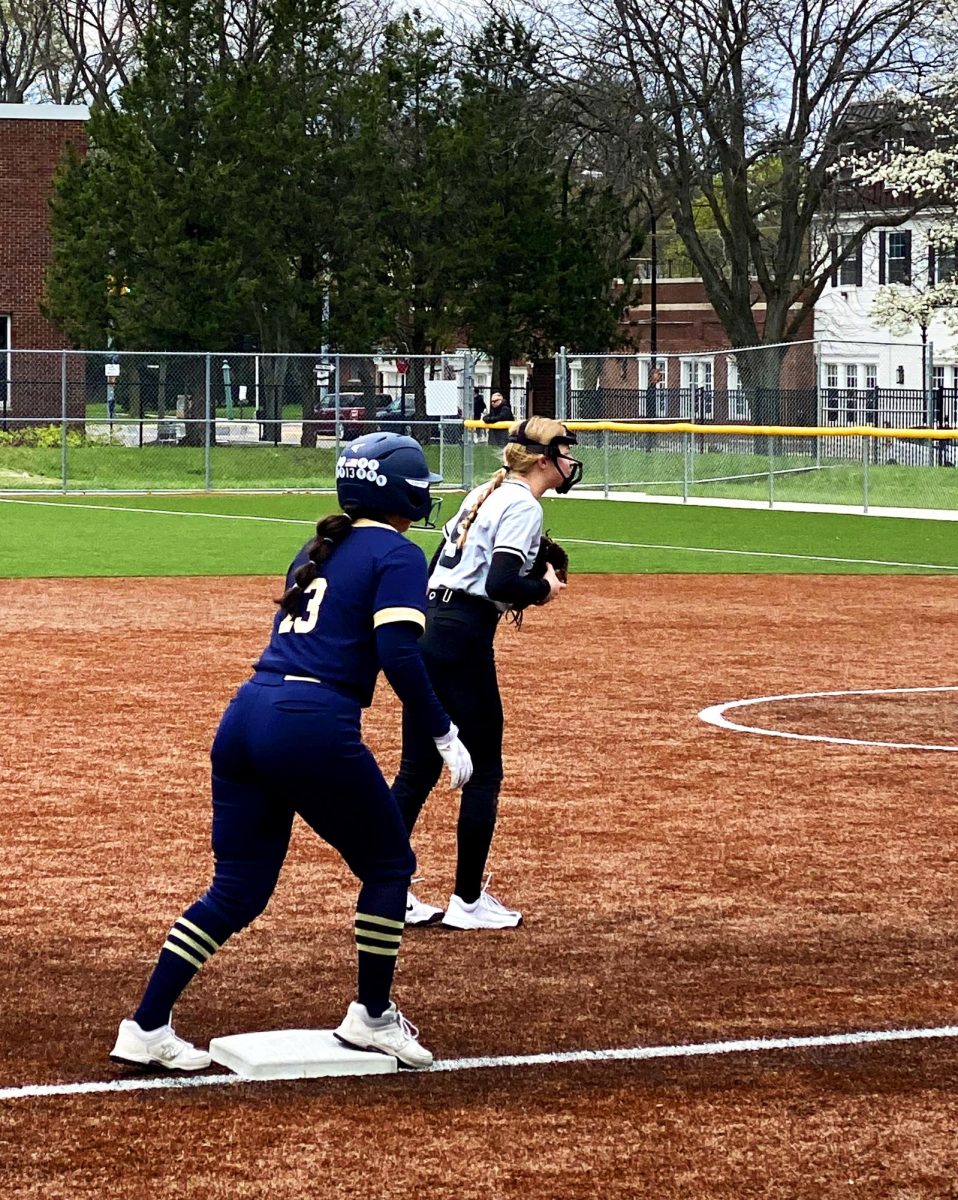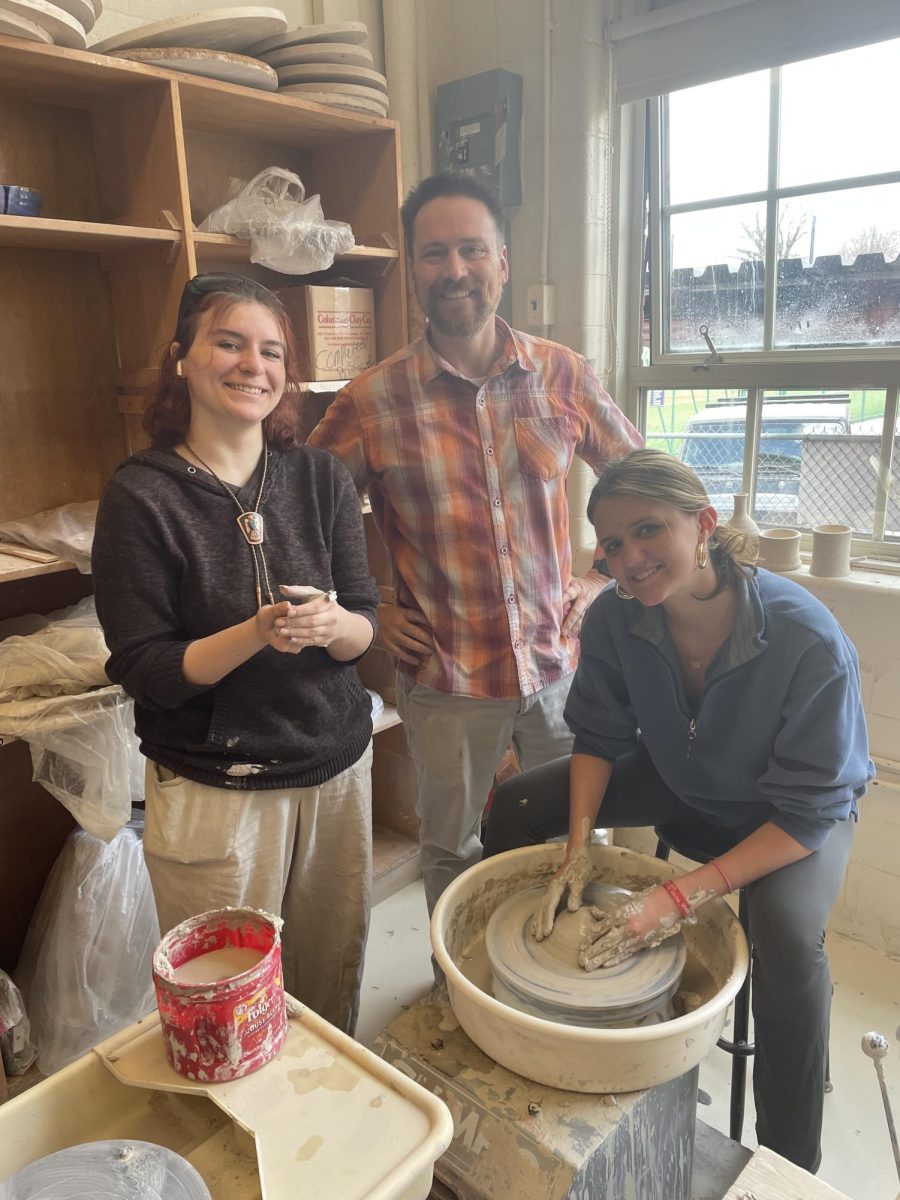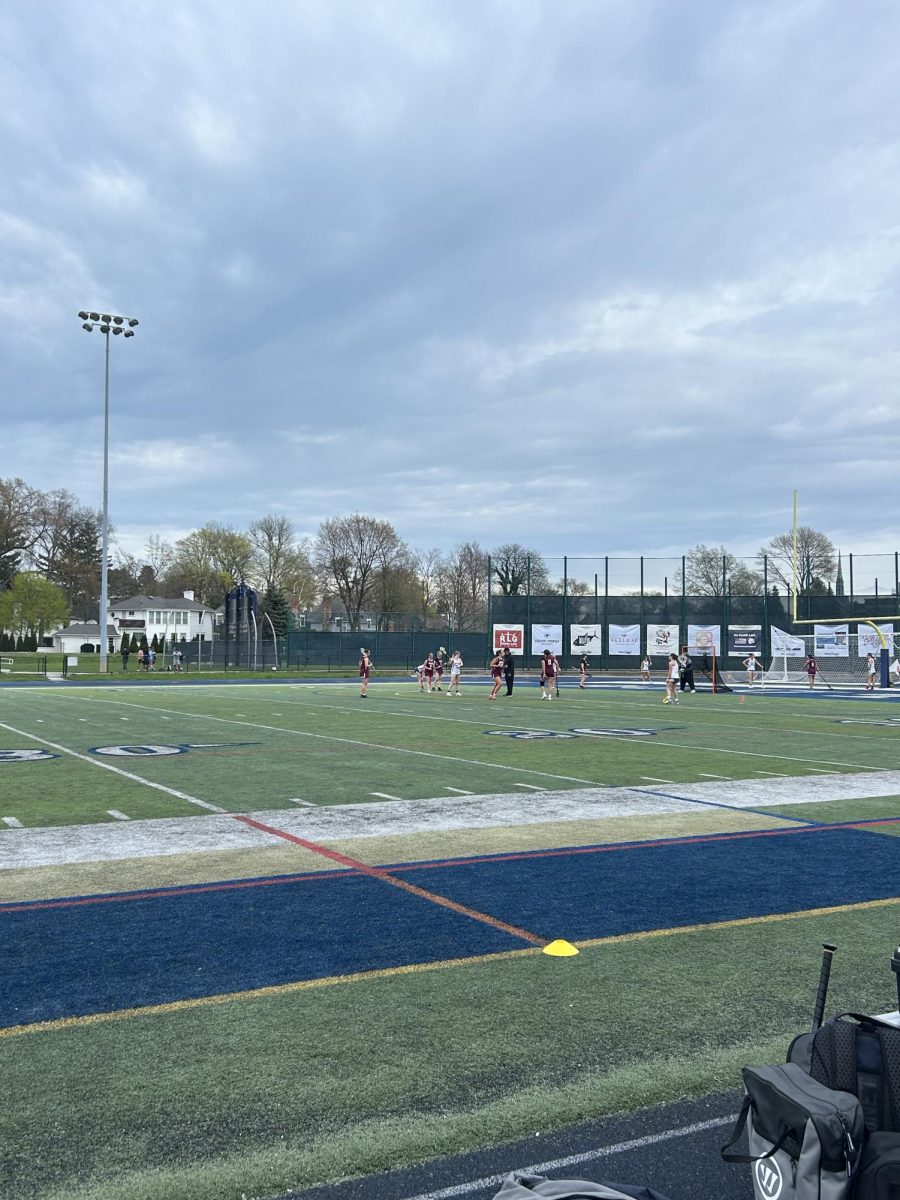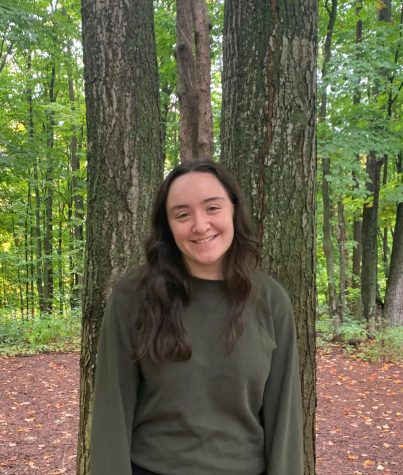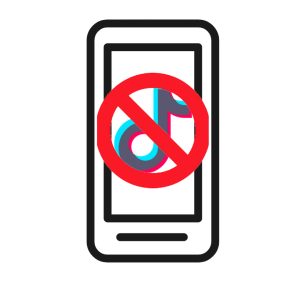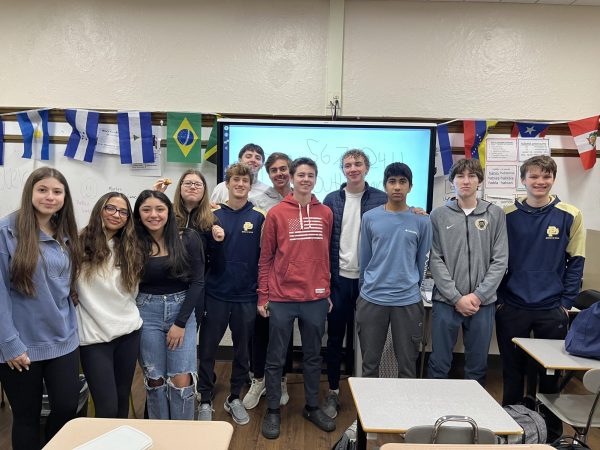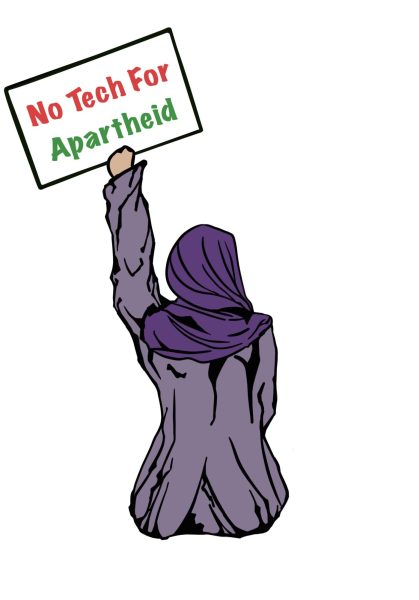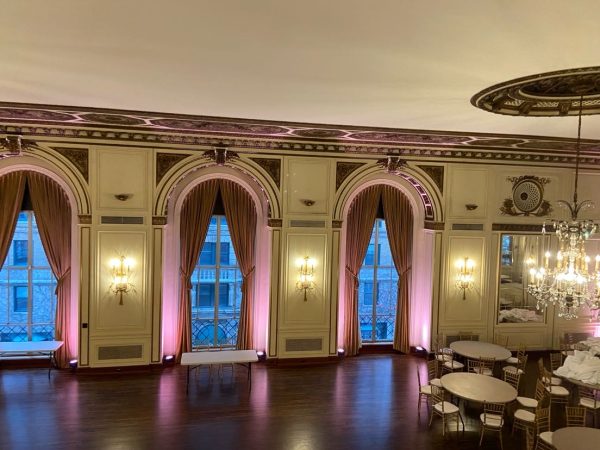United by faith: Religious response, outlook to global pandemic
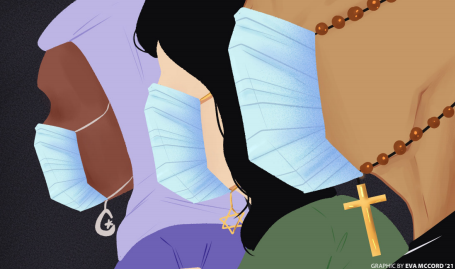
April 30, 2020
Hana Fakih ’23, a practicing Muslim, has not stepped foot in a mosque in a few months, given that most houses of worship are closed to anyone in order to stop the spread of COVID-19. Despite religious gatherings still being allowed, she said she doesn’t go out of precaution.
Governor Whitmer’s Executive Order No. 2020-11 states that “all assemblages of more than 50 people in a single indoor shared space and all events of more than 50 people are prohibited” but “a place of religious worship is not subject to penalty”. According to Fakih, a majority of mosques and other religious buildings have started to hold virtual services to connect with their communities.
“Most, if not all, mosques have shut down for all types of prayers and events,” Fakih said. “They have instead (switched to) an online platform.”
Miranda Freedman ’21 is a member of the Jewish Congregation Shir Tikvah and celebrated Passover from April 8 to April 16. According to Freedman, Passover is a holiday commemorating the Israelites being freed from slavery in Egypt. Each evening of Passover, Jewish people hold Seder, she said, where they read the Passover story and celebrate.
“Normally, we go to friends’ houses for Seders, but because of COVID-19, we could not go this year,” Freedman said. “Although Seders are really long, they are my favorite part of Passover since we get to read the story (of Passover), spend time with friends and family and eat lots of food.”
According to Fakih, Muslims will also celebrate a holiday this month. The holy month of Ramadan, one of the most important Islamic holidays of the year, she said, will begin April 24. She said Ramadan is a time of fasting daily from sunrise to sunset in order to become closer to Allah and foster more compassion for the less fortunate.
“All the typical Ramadan rituals– fasting, breaking the fast and others– still can take place within a family while social distancing, but many people are used to seeing others in the Muslim community,” Fakih said.
Christians around the world celebrated Easter, considered the holiest day of the Christian calendar, on April 12. Emma Bowe ’20 said her Easter during quarantine was very abnormal, adding that she typically goes to church almost every day in the week leading up to it.
“It was weird to watch our online Easter service,” Bowe said. “It did not feel like Easter because I had not been to church throughout the week.”
Bowe, Head Chorister of Christ Church’s choir, said she has been heavily involved at her church since she was young, as her family is very religious.
“I’ve been in my church’s choir for nine years,” Bowe said. “Typically, our Easter services are packed and are super fun for choristers.”
Similarly, Enya Nguyen ’20 is also a member of her Catholic church’s choir. She agreed with Bowe that Easter was atypical this year, but said this new experience had a silver lining– being able to relax.
“During Holy Week and Easter, usually, I would be very busy at choir,” Nguyen said. “While I missed not having more of my family and friends gathered together for Easter, it was nice to have a smaller and less stressful Easter.”
Freedman, as the president of her youth group, said she sympathized with both Bowe and Nguyen, supporting their mixed emotions about being away from their religious communities.
“It’s sad to not be able to go to temple because I can’t see my friends, participate in our youth group events or talk to my Rabbi,” Freedman said.
Both Freedman and Fakih follow religions that keep to certain dietary restrictions and usually travel to other parts of Detroit to get their food. For the sake of social distancing, Freedman’s family has been avoiding making the journey to get kosher ingredients.
“It has been difficult to keep kosher for Passover,” Freedman said. “If we run out of kosher groceries, we can’t go to the kosher market because it’s across town.”
Fakih’s family, who follows a halal diet, has been taking a different approach. They have been purchasing staples, just less frequently than they typically would.
“My family hasn’t stopped getting groceries from Dearborn,” Fakih said. “However, we have lessened the number of trips we make per week.”
Reverend Bob Alltop, head pastor of Nativity Episcopal Church in Bloomfield Hills, said he believes that while Christians, Jews and Muslims may practice different religions, they are all rooted in helping each other as one united people.
“All three major monotheistic faith traditions– Christianity, Judaism and Islam– see God as their source of goodness and love,” Alltop said. “Now is the time to come together to support our different communities.”
According to Alltop, his previous parish supported their local community by feeding them on Sundays, while his current church holds 12-step programs. He said it is difficult for religious groups to assist their in-need populations while still maintaining healthy practices at this time.
“It is the role of religious leaders to help care for the community and be a voice for the voiceless,” Alltop said. “In the Episcopal Diocese, there has been an effort to fund food banks and support outreach in a way that is safe for all.”
Aside from community service projects, Alltop said his parish, like many others, is exploring virtual worship options so parishioners may keep the social aspect of church intact.
“It is difficult to preserve community in this time of social distancing,” Alltop said. “We are trying to provide opportunities for people to connect remotely.”
According to Alltop, the Episcopal Diocese of Michigan has suspended all activities until at least May 10 in an effort to keep citizens safe from COVID-19.
“Church is not about the building,” Alltop said. “It is about the congregation and what happens outside of our building. To gather in person right now is to threaten the well-being of each other and those we might come into contact with.”
Bowe agrees with Alltop that to hold in-person services is destructive, and said the death rate of the coronavirus is troubling enough to keep her in quarantine. According to the Michigan government’s website, as of April 18, Detroit’s COVID-19 death rate was 7.9 percent.
“I understand why people get annoyed at constantly being inside or not being able to go to church,” Bowe said. “However, I’d rather be inside my house than inside a hospital.”
Alltop said he attributes Detroit’s infection rate to many factors, including poor treatment of its residents. He said he believes Metro Detroit’s most vulnerable are being hit hardest by COVID-19.
“In Detroit, there is much more death because of years of society turning a blind eye to systemic poverty,” Alltop said. “Recent protests in Lansing highlight how some are largely insulated from the loss of life in this crisis and see it more as material loss.”
According to Alltop, essential workers in our community are more likely to suffer severely from COVID-19 than non-essential workers.
“This pandemic highlights how many of our essential workers– truckers, store clerks, delivery people, etc.– are also our poorest workers,” Alltop said. “Many of them have limited healthcare access and suffer from economic circumstances that increase their risks for underlying health conditions and complications from COVID-19.”
Alltop said faith and hope keeps him going through this worrying time, and his spirits are lifted by gestures of support throughout the community.
“Hope can empower us even when our faith is wavering or we feel like love is in short supply,” Alltop said. “I see the compassion and love expression by so many– through signs, homemade masks and other- – that I cannot help but have hope for the future.”
Freedman said everyone should keep distancing and listen to advisories to help flatten COVID-19’s curve and overcome the virus.
“We have to take this one day at a time,” Freedman said. “If we follow all the Executive Orders, we will get through this.”


